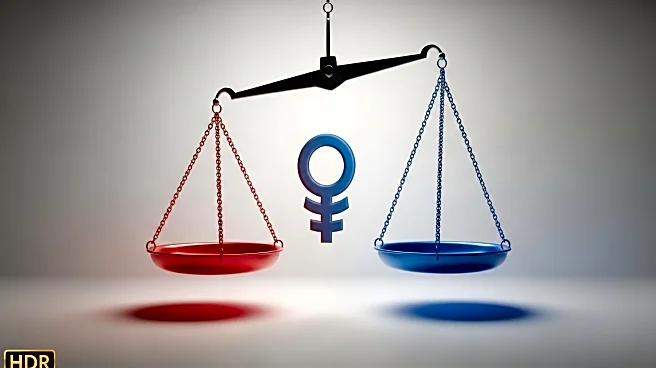What's Happening?
A recent survey commissioned by CNN reveals that nearly half of Americans, approximately 44%, now identify as independents, surpassing those who identify as Republicans or Democrats. This trend reflects a growing disillusionment with traditional party labels, which many perceive as increasingly conformist. The survey categorizes independents into various groups, such as 'Democratic Lookalikes' and 'Republican Lookalikes,' indicating that while they reject party labels, their voting patterns often align with one of the major parties. The phenomenon of 'institutional isomorphism' is cited as a reason for this shift, where political parties and their associated institutions have become more homogeneous, leading to a lack of distinct ideological choices for voters.
Why It's Important?
The rise in Americans identifying as independents signals a significant shift in the political landscape, potentially impacting future elections and party strategies. This trend suggests a growing dissatisfaction with the binary nature of the current political system, where voters feel constrained by the limited choices offered by the two major parties. As more individuals reject party labels, political campaigns may need to adapt by addressing a broader range of issues and appealing to a more diverse electorate. This could lead to changes in how candidates are selected and how political messages are crafted, potentially influencing policy priorities and governance.
What's Next?
As the number of self-identified independents continues to grow, political parties may face pressure to broaden their platforms and address the concerns of this diverse group. This could result in more centrist or issue-specific candidates gaining traction in future elections. Additionally, the primary election process, which currently favors candidates who conform to party ideologies, may need to be reevaluated to accommodate the changing preferences of the electorate. The increasing number of independents could also lead to the emergence of new political movements or parties that better reflect the varied interests of the American public.
Beyond the Headlines
The trend towards identifying as independent may also reflect broader cultural and societal shifts, such as a desire for more personalized and flexible identities in an increasingly complex world. This could have implications beyond politics, influencing how individuals engage with other institutions, such as media and education, which may also need to adapt to a more fragmented and diverse audience. The concept of 'institutional isomorphism' suggests that as organizations become more similar, individuals may seek alternative ways to express their unique perspectives and values.









